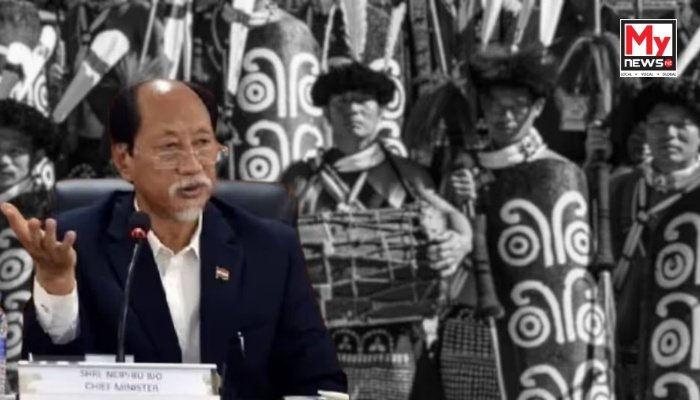Nagaland CM Urges Patience on Job Quota Review Amidst Mounting Tribal Demands
Kohima, Nagaland: Nagaland Chief Minister Neiphiu Rio has appealed to the public for patience as the state government meticulously prepares to form a Commission tasked with reviewing the state’s enduring job reservation policy. Addressing reporters on Wednesday, Chief Minister Rio underscored the intricate nature of the exercise, cautioning against expectations of immediate outcomes.
Rio’s remarks come against the backdrop of escalating demands from the 5-Tribe Committee on Review of Reservation Policy (CORRP), a formidable collective representing the Angami, Ao, Lotha, Rengma, and Sema tribes. The committee has openly voiced its discontent over perceived delays in establishing the Commission, despite a prior cabinet resolution.
Responding to CORRP’s insistence on excluding civil society organisations (CSOs) and NGOs from the Commission to ensure impartiality, Rio stated, “The government will look into it. We have to wait and see.”
Further, the Chief Minister articulated that any substantial reform—be it concerning job reservations, administrative restructuring, or constituency delimitations—should ideally be undertaken only after the nationwide census, anticipated in 2027. “We don’t want to make temporary arrangements,” he affirmed, signalling a commitment to comprehensive and lasting solutions.
CORRP’s agitation gained momentum following a memorandum submitted on September 20, 2024, which was succeeded by a 30-day ultimatum issued on April 26, 2025. The committee has accused the government of inaction until a meeting on June 3, where Deputy Chief Minister Yanthungo Patton provided an assurance that a Commission would be constituted by June 17.
However, CORRP subsequently released a statement expressing profound frustration, lamenting, “There has been no substantive progress or official communication on our key demands.” The committee reiterated its core demands: either a complete scrapping of the current reservation system or the exclusive allocation of the unreserved quota to the five tribes it represents.
Public pressure has been palpable, with peaceful rallies organised in Kohima and in districts predominantly inhabited by the five tribes. Protesters have collectively called for a transparent and inclusive review process, voicing concerns that the reservation system, implemented in 1977, is now anachronistic and fails to mirror the contemporary socio-economic realities across all communities.
The genesis of Nagaland’s reservation policy saw a 25 per cent quota in non-technical and non-gazetted posts earmarked for seven tribes categorised as ‘backward’ based on their educational and economic standing. Over time, this quota expanded to 37 per cent, with 25 per cent designated for seven Eastern Nagaland Backward Tribes and 12 per cent for four other backward tribes.
Acknowledging “gaps in the current system,” Chief Minister Rio assured that the government is committed to addressing reforms “comprehensively and conclusively.”
CORRP has issued a clear warning, stating that should its concerns not be addressed with transparency and within a reasonable timeframe, it reserves the right to initiate further democratic actions.
Read More: Manipur Governor Calls for Sweeping Urban Service Reforms

